Executing a configured UiPath bot from a Process
Up until this point you have configured a connection to your UiPath Orchestrator and made some of its processes available to be used or triggered from a Bizagi Process. However, you have not actually configured the launch of a process execution yet. There are two different ways of configuring the execution of an RPA bot from Bizagi: From an Activity Action and Defining an integration interface.
Before you start
Before you start your bot configuration, take into account the following considerations:
•Bots can only be configured in bot type tasks
•The execution of the bot type tasks is always asynchronous
•If you configure the execution of a bot in an activity action, you must do an on exit configuration.
Configuring the execution of an RPA Bot from an Activity Action
Use this alternative way of configuring the execution of a Bot whenever you want to launch the process just before a task is actually completed. This is useful to capture values on forms and use them as parameters for the execution.
|
Be careful when doing this kind of configuration, since any problem with the bot may cause your process to get stuck. |
1.Configure the task that is going to be executed by a bot on your model, by changing its type to a Bot Task.
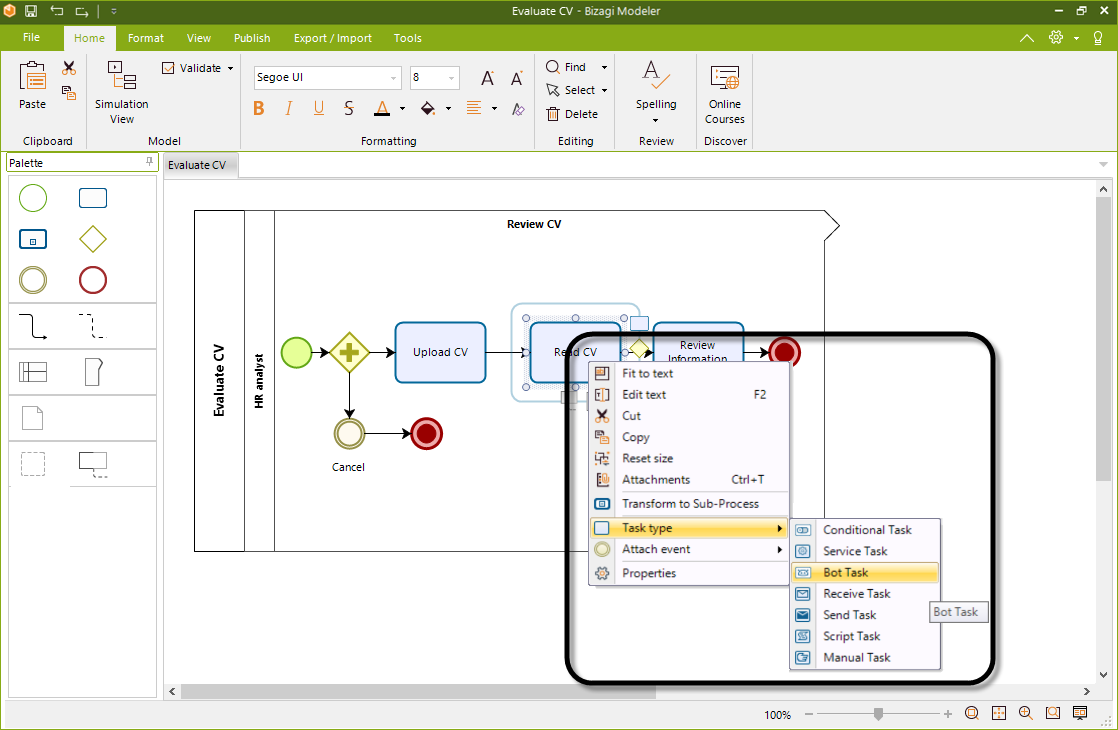
2.A bot task is identified by the ![]() icon.
icon.
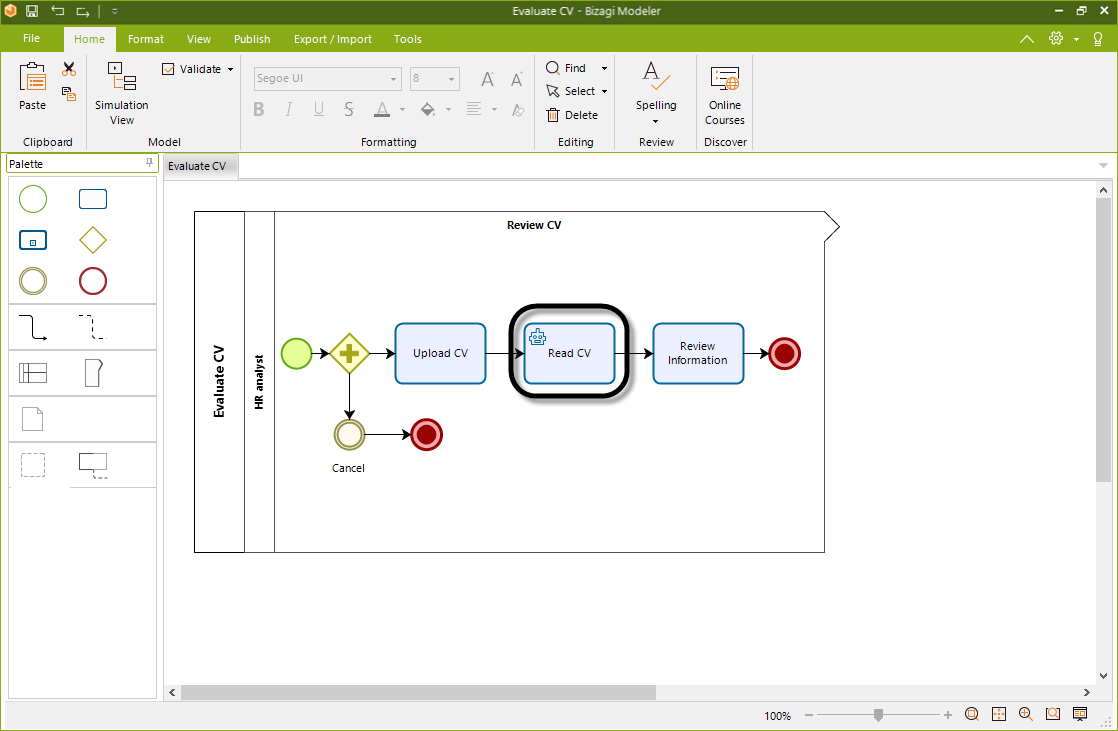
3.Go to the fourth step of the Process Wizard and select Activity Actions
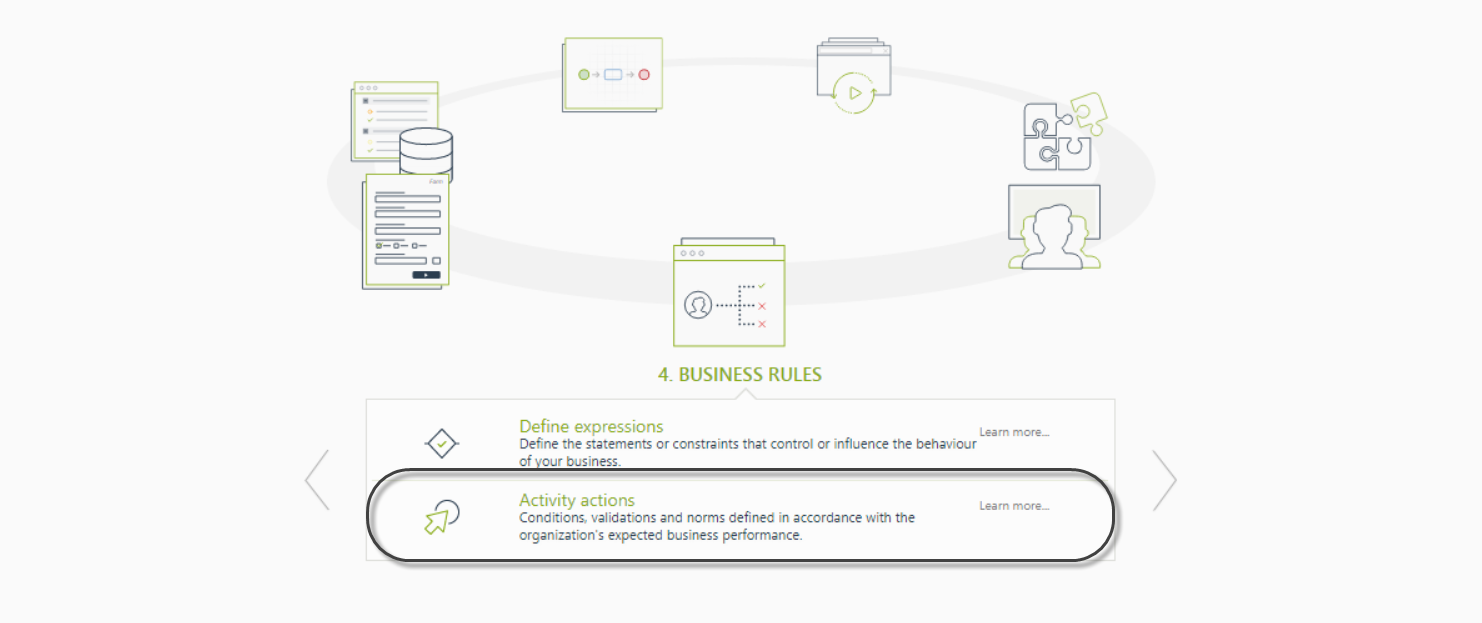
4.Click the task on which you want to add the On Exit Activity and then click the plus icon to add a new Activity Action.
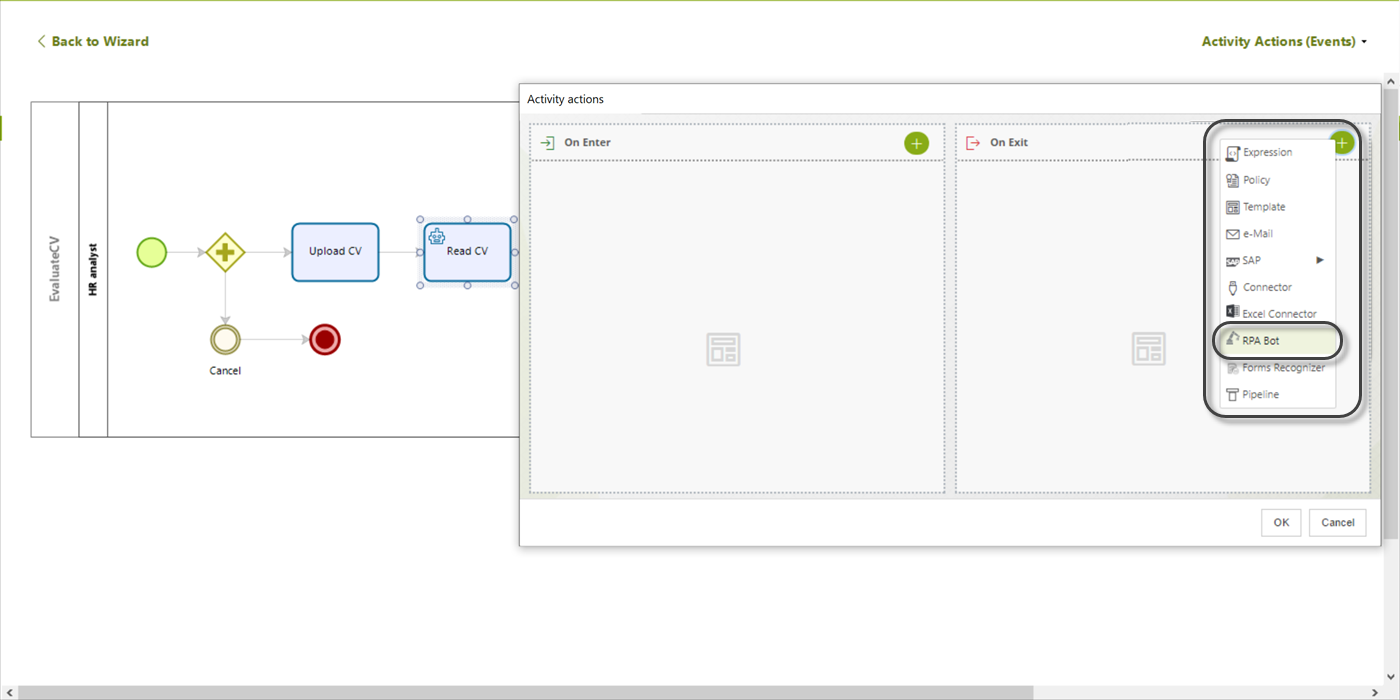
Select the option RPA Bot and the RPA Execution Configuration Wizard appears.
Configuring the execution of an RPA Bot defining an integration interface
Use this alternative way of configuring the execution of a Bot when you want to denote that the process executed by the Bot is a task itself. With this alternative you can also send parameters to its execution from a queue or your Data Model.
|
Keep in mind that Bizagi is only responsible for triggering the execution of the Bot and sending an receiving parameters, the execution of the bot is entirely dependent of UiPath its configuration in UiPath Studio by the developer. |
1.Configure the task that is going to be executed by a bot on your model, by changing its type to a Bot Task.

2.A bot task is identified by the ![]() icon.
icon.

3.Go to the Sixth step of the Wizard Define Integration Interfaces, to configure the execution.
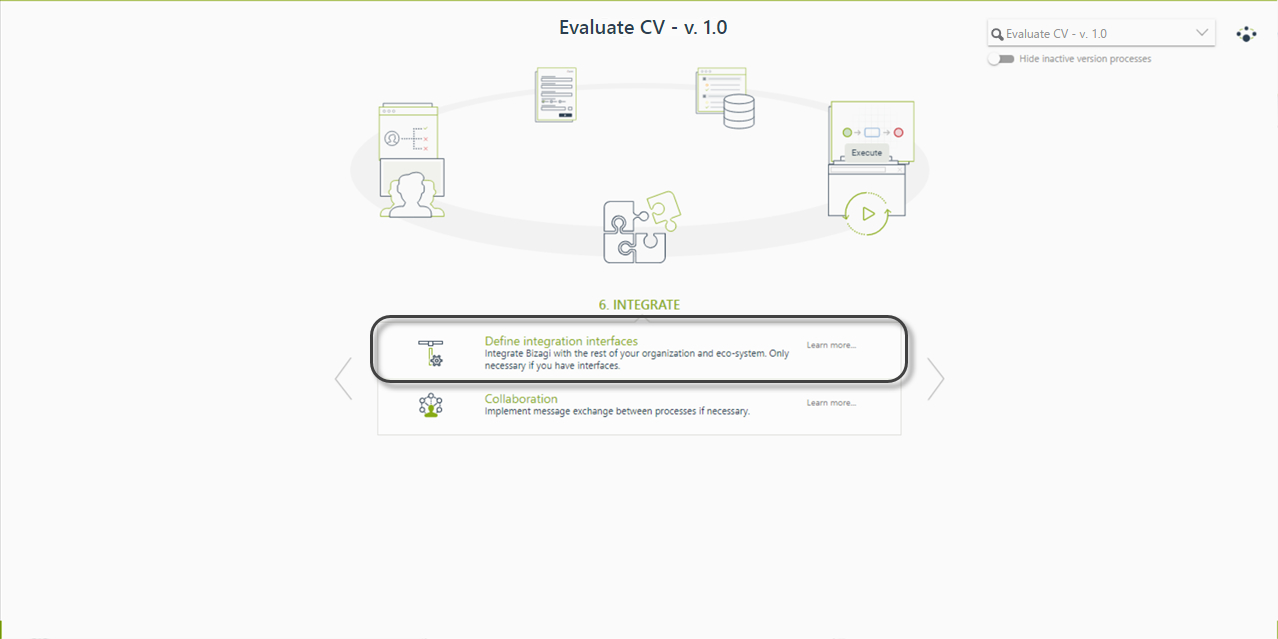
4.Click the Bot Task of your process to launch the RPA Execution Configuration Wizard.
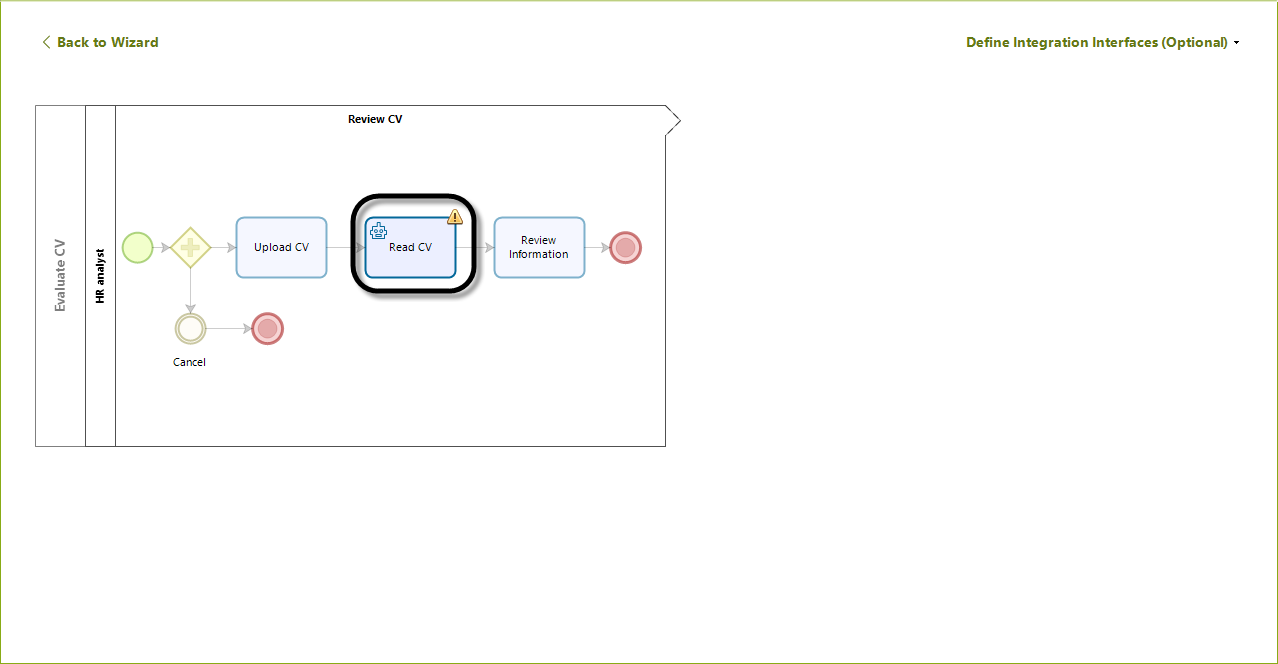
Configuring the execution of a bot
Independently of which alternative you used to trigger the bot, from an Activity Action or defining an integration interface, the RPA Execution Configuration Wizard appears.
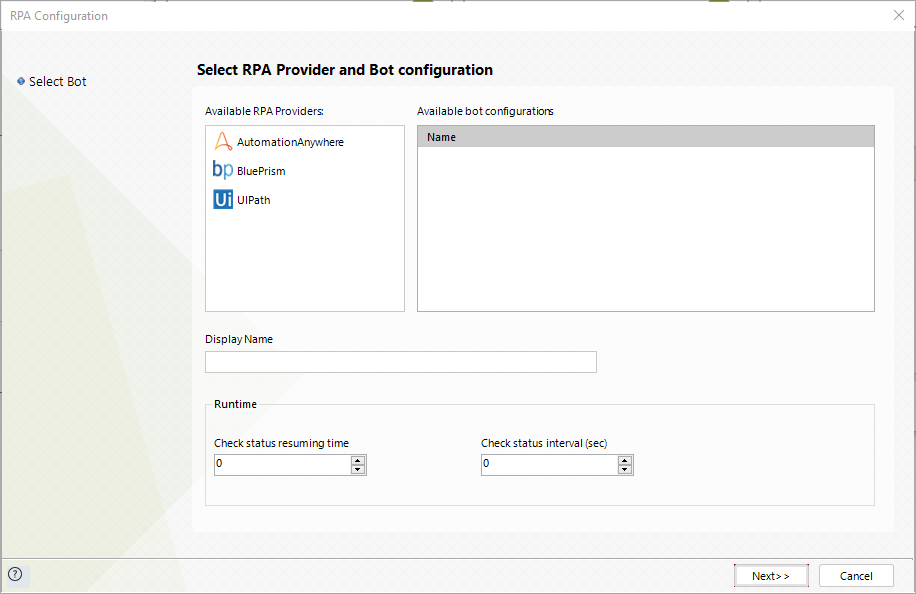
In this Wizard you can configure the triggering of an RPA bot when your process reaches this point on its flow. First, select the corresponding RPA vendor on the left panel, in this case click UiPath.
After selecting your vendor, on the main panel you can see the list of available Bot configurations. This list corresponds to what you have previously configured on the Expert View. Select the Bot you want execute at this point of your process.
At the bottom of this screen there are two fields that you need to configure:
•Check status resuming time: in this field you need to configure the number of times Bizagi will be checking the status of the execution of the bot to know when it finished or have failed.
•Check status interval (sec): in this field you need to configure the amount of time in seconds between each of the status checks that are going to be performed, as configured in the previous field.
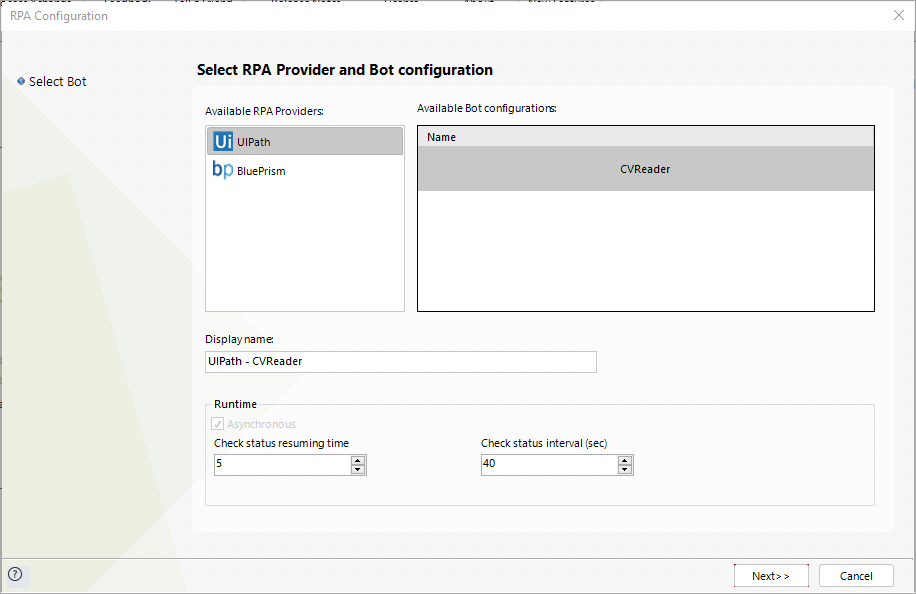
In this case, for example, we have configured Bizagi to check for the status of execution of the bot five times, every 40 seconds.
Once you are done providing this information, you can head to the next step of the Wizard. If your Bot receives parameters, you will be presented with a mapping interface for you to select which attribute of your data model is going to be inputted as a parameter to the bot; and then, you will be prompted to map to which attribute of your data model the resulting information of the bot is going to be stored in.
|
If you configured the process in the Expert View indicating that it does not receive any parameters, this steps are automatically skipped. |
Map the inputs to your data model in the next window an click Next.
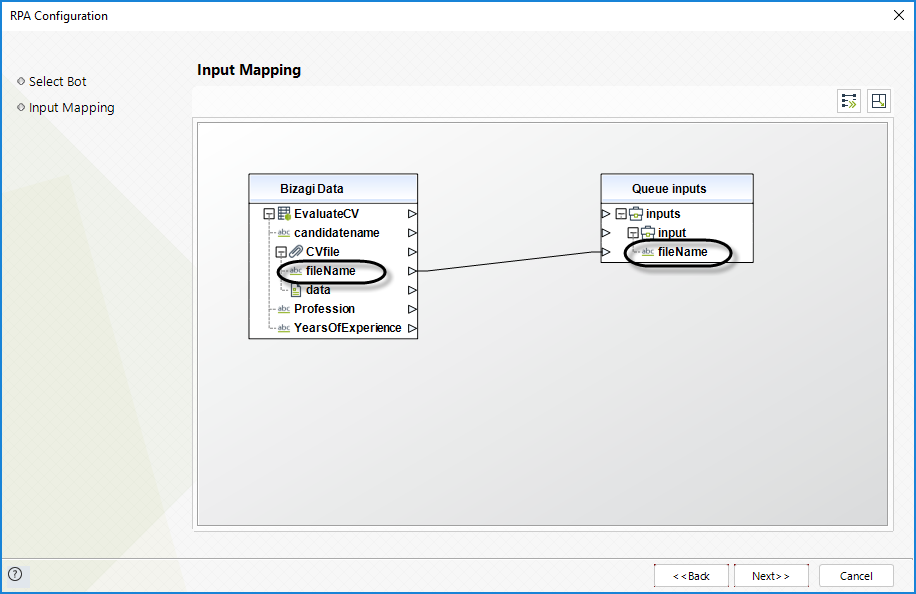
Do the same for the outputs in the next window.
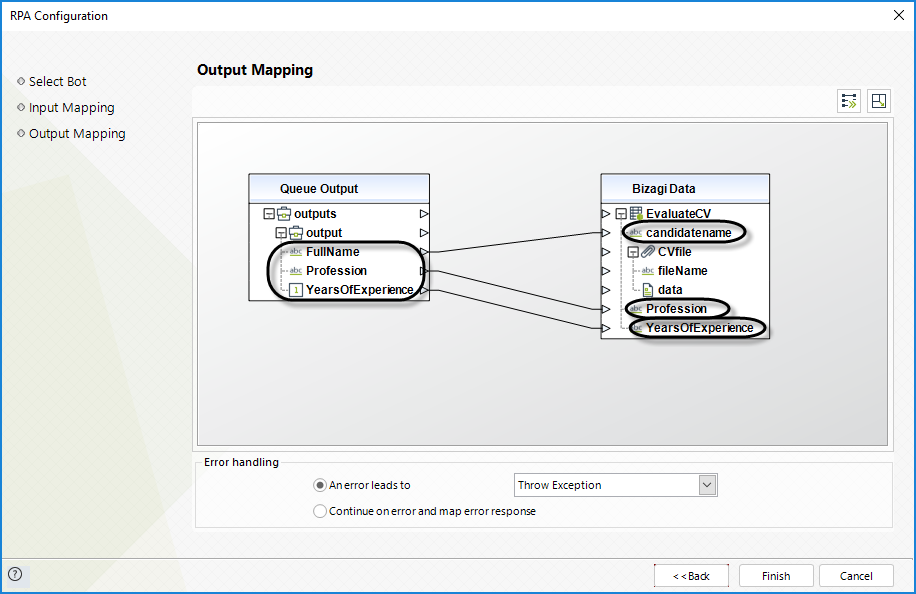
In this case, the bot receives the name of the CV it will read in the input nameFile as a parameter, reads the CV looking for information about the candidate, and writes its result in the CandidateName, Profession and Yearsofexperience attributes of the data model.
This configuration works the same way for the case of reading and writing to queues, the difference is that the bot internally will look in the queue instead of in the data model to obtain and write parameters.
Once you are done mapping the input and output parameters, click Finish.
At this point you have now configured a bot to be executed each time that the process flow gets to that specific point.
Changing the execution of a bot
After you configure a bot through the RPA Execution Configuration Wizard, an activity action is created in the task where the bot is being executed. Once the bot is configured, the bot configurations in the wizard are disabled. Thus, in case you need to change its execution, you need to delete the existing activity action and configure a new bot.
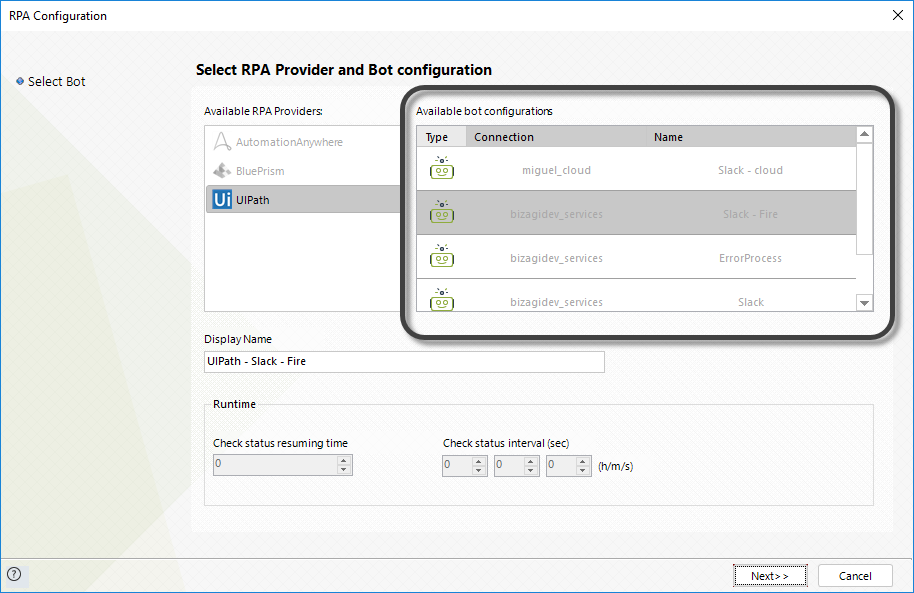
Last Updated 1/23/2023 12:05:09 PM